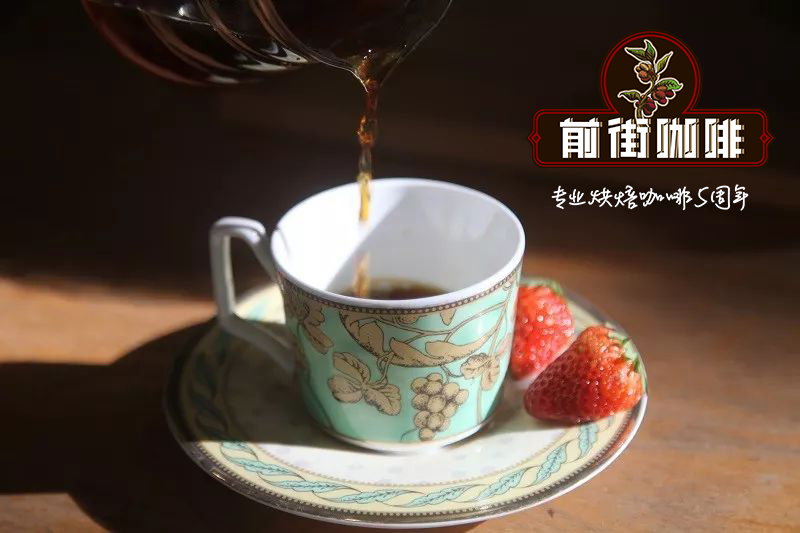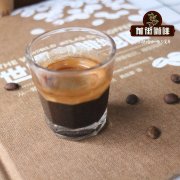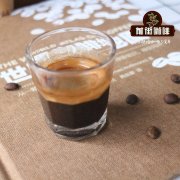What kind of coffee is there in Sulawesi, Indonesia? Tonaga Toraja Coffee and Carlos kalosi Coffee area

Professional coffee knowledge exchange more coffee bean information please follow the coffee workshop (Wechat official account cafe_style)
Indonesian Coffee-Toraja Coffee
Toraja [TORAJA] is a local minority of TANAH TORAJA, which lives in the central plateau of Sulawesi Island [ISLAND SULAWESI] in Indonesia. Sulawesi was formerly known as Celebes [CELEBES]. The Toraja nationality is a very distinctive ethnic group, and they have maintained many primitive customs so far. Boathouses, hanging coffins, they are said to be descendants of an invading people who assimilated or destroyed the aborigines when they ruled the island. Later, they were driven away by Muslim Indonesians, such as the Phuket [BUGIS], and left the coast to settle in the highlands and mountains. They were tough and belligerent, and in order to avoid the invasion of other ethnic groups, they built their villages on high ground that was easy to defend.
Because it is located on a plateau with extremely inconvenient transportation, most of the Toraja coffee beans are harvested by farmers, using the traditional Indonesian wet planing method, using a simple fruit peeling machine to remove the cherry pulp, and the coffee beans are soaked in a water basin and fermented in plastic bags, and then the so-called parchment is dried. After drying (water content between 11-13%), it is transported from the mountainous area to KALOSI at the foot of the mountain, where it is sold to intermediaries or processing plants for subsequent processing and refinement, so the Kalosi area has become an important coffee distribution center. This is why some people call Toraja Coffee Kalosi Coffee.
Because it is located in the plateau and mountainous area, the infrastructure construction is extremely backward, and the traffic is very inconvenient. As a result, the production of Toraja coffee beans is not high, and Japanese bean merchants who have been stationed locally for a long time have scraped most of the high-quality Toraja coffee beans. Because of this, high-quality Toraja coffee has little chance to enter the Chinese mainland market.
In addition to the visible dark green, Toraja raw beans show low acidity, thick taste, soft and long fruit flavor, highlighting the uniqueness of Sulawesi Toraja coffee, which is different from Sumatra Manning. Mild acidity with some ripe grape flavor, clean but solid taste, the latter part of the caramel sweetness, lingering in the mouth.
Balini grows kalosi Toraja coffee on his own plantation in Tana Toraja, Sulawesi province in southern Indonesia, and bakes it in his own roaster in Shanghai. Their aim is to get consumers to taste fresh coffee beans, not products that have been bumpy on the shelves for months. I have tried balini coffee many times and I am a big fan of them.
END
Important Notice :
前街咖啡 FrontStreet Coffee has moved to new addredd:
FrontStreet Coffee Address: 315,Donghua East Road,GuangZhou
Tel:020 38364473
- Prev

Indonesian Java Coffee Brand recommendation _ Karosi Toraja Kalosi Toraja Coffee Bean introduction
Professional coffee knowledge exchange more coffee bean information please follow the coffee workshop (Wechat official account cafe_style) Karosi Toraja (Kalosi Toraja) after a hundred years of precipitation, ingenuity, handed down from generation to generation, has been Indonesia Zanatolaja coffee beans, in Indonesia Tanatolaja (Tana Toraja) 1200 hectares of private coffee farm carefully bred, only this place, annual output
- Next

Indonesia suryana Suyaga Coffee Brand introduction _ Robaster Muscat shit Coffee beans how much is it
Professional coffee knowledge exchange more coffee bean information please follow the coffee workshop (Wechat official account cafe_style) Product name: Kopi Luwak (Kopi Luwak) Brand: Suryana (Suyaga) Origin: Indonesian specifications: 200g ingredients: Robaster Coffee Suryana civet Kopi Luwak is a recently invented coffee produced in Indonesia. This
Related
- Detailed explanation of Jadeite planting Land in Panamanian Jadeite Manor introduction to the grading system of Jadeite competitive bidding, Red bid, Green bid and Rose Summer
- Story of Coffee planting in Brenka region of Costa Rica Stonehenge Manor anaerobic heavy honey treatment of flavor mouth
- What's on the barrel of Blue Mountain Coffee beans?
- Can American coffee also pull flowers? How to use hot American style to pull out a good-looking pattern?
- Can you make a cold extract with coffee beans? What is the right proportion for cold-extracted coffee formula?
- Indonesian PWN Gold Mandrine Coffee Origin Features Flavor How to Chong? Mandolin coffee is American.
- A brief introduction to the flavor characteristics of Brazilian yellow bourbon coffee beans
- What is the effect of different water quality on the flavor of cold-extracted coffee? What kind of water is best for brewing coffee?
- Why do you think of Rose Summer whenever you mention Panamanian coffee?
- Introduction to the characteristics of authentic blue mountain coffee bean producing areas? What is the CIB Coffee Authority in Jamaica?

